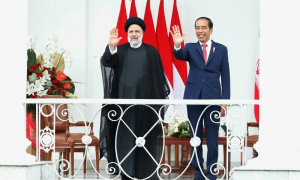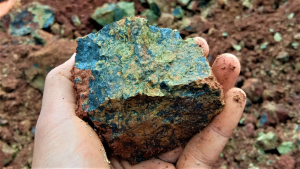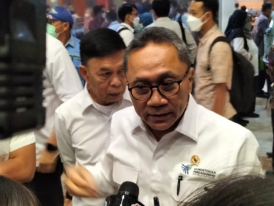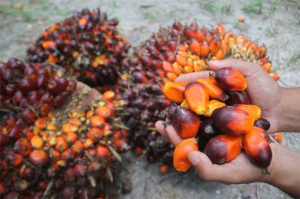Surveyor Indonesia verifies Freeport's smelter progress for export duty reduction
PT Surveyor Indonesia Tbk is verifying the progress of gold and copper mining company PT Freeport Indonesia (PTFI)'s smelter in Gresik, East Java. The verification is needed to decide if it has reached more than 30% progress as claimed by the Energy and Mineral Resources Ministry and the company itself. Based on the regulation, Freeport can secure export duty reduction from 5% to 2.5% if the progress on smelter is more than 30%.
Freeport Indonesia Vice President Corporate Communication Riza Pratama said the construction of its smelter, which reached 34.9% progress by June 2022, still needed a verification by an independent party. He added that Freeport was waiting for verification result by Surveyor.
Freeport Indonesia is developing a smelter that can turn copper concentrate into cathodes with a capacity of 1.7 million tons per year. The smelter development is expected to cost about US$3 billion and will be funded from loans and the company’s equity. Pratama said the company has raised overseas bonds for the project.
On July 15, 2022, Freeport Indonesia and PT Chiyoda International Indonesia signed an agreement on the construction of the smelter. According to Pratama, Freeport already set a target date for the completion of the smelter in 2023. It will do the commissioning tests in the second quarter of 2024. “It will not operate at 100 percent capacity immediately,” he said.
Read also: Freeport Indonesia smelter progress reaches 27%
Surveyor Indonesia's field surveyor Muhammad Iqbal confirmed that his company has been assigned by the energy ministry to verify the progress of Freeport's smelter in Gresik.
The energy ministry's Director of Mineral Business Development, Directorate General of Minerals and Coal, Sugeng Mudjianto said to grant export duty reduction to Freeport Indonesia, the progress of the smelter should be verified by an independent party every six months. He added that the Ministry of Finance was responsible to make the decision on the export duty.
Interministerial decisions on smelter
The finance ministry's Head of Fiscal Policy Agency, Pande Putu Oka Kusumawardani, said based on laws and regulations in the Customs and Excise sector (Finance Ministry Regulation (PMK) No. 39/PMK/010/2022, which is an amendment to PMK No. 98/PMK.010/2022), exported mineral products are imposed Export Duty concerning physical progress of the smelter construction:
a. Imposition on the Export Duties of mineral products related to the physical progress of the smelter construction are as follows:
1. First phase: an export duty tariff of 5% for physical construction progress of less than 30% of the total construction.
2. Second phase: an export duty tariff of 2.5% for physical construction progress of less than 50% of the total construction.
3. Third phase: an export duty tariff of 0% for physical construction progress of more than 50% of the total construction.
b. The level of physical construction progress is included in the export recommendation issued by the Ministry of Energy and Mineral Resources.
c. The export approval issued by the Trade Ministry should include the physical progress of the construction included in the export recommendation and become the basis for imposing export duty fines.
The finance ministry spokesperson Adelia Pratiwi said that based on Kusumawardani's explanation, the finance ministry would be able to ensure that Freeport secure a reduction in export duties as long as the company obtained a recommendation from the energy and mineral resource ministry and the trade ministry's approval.
"It is possible to grant the export duty if points b and c have been met," she said. "It would be prudent to be cautious since it involves not just the finance ministry. The tariff can be lowered if the energy and mineral resources ministry and the trade ministry recommend a lower export duty."
The energy ministry's Director General of Minerals and Coal, Ridwan Djamaludin, said he did not have any information on the latest condition of Freeport's export recommendation. However, the ministry will support the smelter construction if it reaches the target.
He explained that the export recommendation would be granted based on the ministry's monitoring of the smelter construction progress. According to him, the ministry hopes the two things can run concurrently and the smelter can be built under the plan. As long as the company maintains its capabilities, it may still be productive and economically viable.
Already have an account? Sign In
-
Start reading
Freemium
-
Monthly Subscription
20% OFF$29.75
$37.19/MonthCancel anytime
This offer is open to all new subscribers!
Subscribe now -
Yearly Subscription
33% OFF$228.13
$340.5/YearCancel anytime
This offer is open to all new subscribers!
Subscribe now







